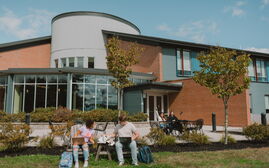Processing Your Payment
Please do not leave this page until complete. This can take a few moments.
- News
-
Editions
-
- Lists
-
Viewpoints
-
Our Events
-
Event Info
- Women's Leadership Forum 2025
- On the Road with Mainebiz in Bethel
- Health Care Forum 2025
- On The Road with Mainebiz in Greenville
- On The Road with Mainebiz in Waterville
- Small Business Forum 2025
- Outstanding Women in Business Reception 2025
- On The Road with Mainebiz in Bath
- 60 Ideas in 60 Minutes Portland 2025
- 40 Under 40 Awards Reception 2025
- On The Road with Mainebiz in Lewiston / Auburn
- 60 Ideas in 60 Minutes Bangor 2025
Award Honorees
- 2025 Business Leaders of the Year
- 2024 Women to Watch Honorees
- 2024 Business Leaders of the Year
- 2023 NextUp: 40 Under 40 Honorees
- 2023 Women to Watch Honorees
- 2023 Business Leaders of the Year
- 2022 NextUp: 40 Under 40 Honorees
- 2022 Women to Watch Honorees
- 2022 Business Leaders of the Year
-
-
Calendar
-
Biz Marketplace
- News
- Editions
- Lists
- Viewpoints
-
Our Events
Event Info
- View all Events
- Women's Leadership Forum 2025
- On the Road with Mainebiz in Bethel
- Health Care Forum 2025
- On The Road with Mainebiz in Greenville
- On The Road with Mainebiz in Waterville
- + More
Award Honorees
- 2025 Business Leaders of the Year
- 2024 Women to Watch Honorees
- 2024 Business Leaders of the Year
- 2023 NextUp: 40 Under 40 Honorees
- 2023 Women to Watch Honorees
- 2023 Business Leaders of the Year
- + More
- 2022 NextUp: 40 Under 40 Honorees
- 2022 Women to Watch Honorees
- 2022 Business Leaders of the Year
- Nomination Forms
- Calendar
- Biz Marketplace
Pilot program aims to boost digital workforce
A pilot project among Venture Hall, Thomas College and Project>Login could bring much-needed software development classes to Maine using the Code Fellows program developed in Seattle.
The partners are talking to employers throughout the state about how the program may fit with their workforce needs. It will hold Code 101 classes on June 10 and 11 in Portland and Waterville, respectively.
Jason Judd, executive director of Project>Login, a Maine program to connect Mainers to careers in computing and information technology, says the Code Fellows program, along with other computer science programs and classes in the state, could provide relevant prospective employee training for employers and technology-related companies.
Maine currently has 1,144 open computing jobs, almost three times the job demand rate in the state, Maine Mathematics and Science Alliance found in its report released in January. The average salary for a computing occupation in Maine is $73,150, much higher than the state average of $43,260.
The job website Indeed.com alone listed 100 open software developer jobs in Maine ranging in pay from $65,000 to $95,000 and 93 basic programmer and coding jobs ranging in pay from $30,000 to $85,000.
Thomas College President Laurie Lachance said when the Code Fellows project was announced in mid-April that moving the program beyond Portland opens more opportunities for other Mainers to build skills and increase their chances for good-paying jobs.
The Code Fellows program, which in other states has educated not only technologists but people with fine arts, education and social sciences backgrounds, aims to bridge the job gap in Maine and potentially ripple down to younger students to interest them in the science, technology, engineering and mathematics fields.
Only 165 high school students in Maine took the AP Computer Science exam in 2016, according to the Maine Mathematics and Science Alliance. Of those, only 14% were female. And only 38 schools in Maine offered the AP Computer Science course in 2015-16. The alliance noted that fewer AP exams were taken in computer science than any other STEM subject area.
There currently is a big gap in what parents want and schools offer, the alliance found. Some 90% of parents want their children to learn computer science, but only 40% of schools in the state teach computer programing. Maine has not yet created a statewide plan for K-12 computer science to make it a fundamental part of the education system. And that impacts students' future job prospects.
The Maine Workforce 2025 report issued in March 2015 envisions a future for Maine government workers that includes much more technology and robotics in the workplace. It noted that digital workers who can design and maintain applications for new technologies, as well as retrieve, analyze and use data to solve problems, will be increasingly in demand.
Starting with early education, Project>Login aims to increase the number of Mainers interested in technology careers using K-12 computer science initiatives, in collaboration with employers and workforce development partners.
The Code Fellows program, if successful in Maine, could notch that up the ladder by teaching software development to people changing jobs, entering the workforce or who are out of work.
Venture Hall noted that 77% of graduates from the national program had no previous professional coding background and came out of it looking at average starting salaries of more than $72,000.
Venture Hall CEO Mike Sobol was optimistic about the prospects of the Code Fellows program, saying that fitting employer needs with the demand for workers should make the program successful and sustainable in Maine.
Requirements for Maine Government Workers 2025
• Digital workers/data analysis
• Age diverse work plan
• Continuous learning and development
• Intelligent innovation and change
• Employment relationships
• Cultural fluency and global competencies
SOURCE: Maine Workforce 2025













Comments